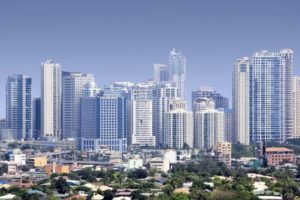EU: The European Union countries to reopen borders
The EU Council is recommending lifting the temporary restrictions on non-essential travel into the EU. Restrictions should be lifted for countries listed in the recommendation, with this list being reviewed and updated every two weeks, as necessary.
Impact
As of July 1, 2020, member states should start lifting travel restrictions at external borders for residents of the following countries:
- Algeria
- Australia
- Canada
- Georgia
- Japan
- Montenegro
- Morocco
- New Zealand
- Rwanda
- Serbia
- South Korea
- Thailand
- Tunisia
- Uruguay
- China, subject to confirmation of reciprocity
Residents of Andorra, Monaco, San Marino and the Vatican are to be considered as EU residents for the purposes of this recommendation.
Please note that residence in these countries should be the determining factor (and not nationality). Travelers from these countries can be subjected to quarantine measures, provided that these also apply to nationals of the country imposing them.
For other countries the original travel restrictions for non-essential travel will remain in place.
Looking ahead
The Council’s recommendation is not legally binding, and the authorities of the member states remain responsible for implementing the content of the recommendation.
In order for the restrictions to be lifted, the following must be considered:
- The number of new COVID-19 cases over the last 14 days and per 100 000 inhabitants close to or below the EU average.
- A stable or decreasing trend of new cases over this period in comparison to the previous 14 days.
- The overall response to COVID-19 including aspects such as testing, surveillance, contact tracing, containment, treatment and reporting, as well as the reliability of the information.
Reciprocity should also be considered regularly and on a case-by-case basis.
This summary was prepared using information obtained from European Council.
Disclaimer: The above information is provided for general information purposes only and should not be construed as legal advice. If you have any further inquiries regarding the applicability of this information, please contact Laxmi Vikraman, Regional Immigration Manager (EMEA).
Netherlands: Partial lifting of the EU travel ban
As of July 1, residents of the following countries are allowed to travel to the Netherlands: Algeria, Australia, Canada, China, Georgia, Japan, Montenegro, Morocco, New Zealand, Rwanda, Serbia, South Korea, Thailand, Tunisia and Uruguay. Chinese travelers can enter only if China allows EU citizens in again.
Exception for Highly Skilled migrants, students and family members of Dutch nationals
Nationals of Australia, Canada, Japan, New Zealand, United States of America or South Korea, do not need an MVV entry visa and are not on the list mentioned above. Entry is allowed if individuals live in one of the countries to which the entry ban does not apply.
Individuals living in a country where a travel ban applies (for e.g. the U.S), can only travel to the Netherlands in the case of a vital function or need or if they have received a letter from the IND (approval notification) stating that they will receive a residence permit as a:
- Highly skilled migrant (including holders of a European blue card, ICT permits or researchers)
- Family member of a highly skilled migrant or student
- Student (college, university)
- Family member of a Dutch sponsor (partner, spouse, child)
Individuals traveling directly to the Netherlands must meet the following requirements:
- Arrivals from high-risk areas must present a health declaration.
- Highly skilled migrants (holders of a European Blue Card, ICT permit or researchers) must present the letter stating that they will be issued a residence permit (approval notification). They must also present a written statement from their employer stating that they must be in the Netherlands for work and the reasons for this. It should also state the reasons their employee cannot come to the Netherlands at a later stage.
- Family members of highly skilled migrants or students: if not traveling together, the family member will need a copy of the migrant’s approval notice.
- Students: a letter stating that they have been granted a residence permit.
- Family members of Dutch sponsors: approval of residence permit (letter) and official documents that prove family relationship.
If the airline does not allow these passengers on a flight because they do not consider the notification as sufficient evidence, they can send an email to vragengrenskantoor@ind.nl. These passengers are urgently advised to go into self-isolation or quarantine for two weeks upon arrival.
This summary was prepared using information obtained from Immigration and Naturalization Service.
Disclaimer: The above information is provided for general information purposes only and should not be construed as legal advice. If you have any further inquiries regarding the applicability of this information, please contact Laxmi Vikraman, Regional Immigration Manager (EMEA).
Philippines: Resumption of ACR I-Card Waiver issuance
On July 13, the Bureau of Immigration (BI) will resume processing Alien Certificate of Registration Identity Card (ACR I-Card) Waivers. Foreign nationals with approved visas waiting on the release of ACR I-Cards must present the waiver in order to exist at departure ports. Processing may take three to five working days.
The summary was prepared using information obtained from the Bureau of Immigration.
Disclaimer: The above information is provided for general information purposes only and should not be construed as legal advice. If you have any further inquiries regarding the applicability of this information, please contact Debra Jane Beynon, Regional Immigration Manager (APAC).
United Kingdom: Countries and territories exemption list
Impact
As of July 10, travelers from the countries below and territories will be not be required to undergo self-isolation upon arrival to England, unless they have visited or stopped in any other country or territory in the preceding 14 days.
Andorra, Antigua and Barbuda, Aruba, Australia, Austria, Bahamas, Barbados, Belgium, Bonaire, Sint Eustatius and Saba, Croatia, Curaçao, Cyprus, Czech Republic, Denmark, Dominica, Faroe Islands, Fiji, Finland, France, French Polynesia, Germany, Greece, Greenland, Grenada, Guadeloupe, Hong Kong, Hungary, Iceland, Italy, Jamaica, Japan, Liechtenstein, Lithuania, Luxembourg, Macau, Malta, Mauritius, Monaco, Netherlands, New Caledonia, New Zealand, Norway, Poland, Réunion, San Marino, Serbia, Seychelles, South Korea, Spain, St Barthelemy, St Kitts and Nevis, St Lucia, St Pierre and Miquelon, Switzerland, Taiwan, Trinidad and Tobago, Turkey, Vatican City, Vietnam.
Note: this relates to those arriving to England, not other parts of the U.K.
Moreover, 14 British Overseas Territories will be exempted. Ireland, the Channel Islands and the Isle of Man are exempt as they are part of the common travel area.
Looking ahead
The list above may be added to over the coming days following further discussion between the U.K. and international partners.
This summary was prepared using information obtained from Gov.uk.
Disclaimer: The above information is provided for general information purposes only and should not be construed as legal advice. If you have any further inquiries regarding the applicability of this information, please contact Laxmi Vikraman, Regional Immigration Manager (EMEA).
United States: Expanded restrictions on foreign workers without valid visa stamps
Following the announcement of the entry restrictions on certain foreign workers, the U.S. President has made new amendments expanding the category of foreign nationals subject to the restrictions. The additional restrictions will prohibit certain foreign workers without valid visa stamps from entering the U.S. until December 31, 2020. This proclamation does not affect foreign workers and dependent family members who already have valid visas stamps in their passports.
Additionally, it is important to note that the petition and application process in the U.S. will not be impacted, allowing extensions and/or changes of status to be secured for H-1B, L-1, J-1 and other eligible non-immigrant visa classifications. Permanent resident filings within the U.S. have also not been impacted by the proclamation.
It is also important to note that individuals are still subject to the various COVID-19 “travel bans” and restrictions placed on the visa application process due to the closure of U.S. consular posts.
This summary was prepared using information obtained from Maggio Kattar.
Disclaimer: The above information is provided for general information purposes only and should not be construed as legal advice. If you have any further inquiries regarding the applicability of this information, please contact Roberta Carnaccini, Global Operations Director, Immigration.
Latest coronavirus news:
AMER
Brazil:
- Entry for visitor and temporary visa holders for business purposes, artistic and sports activities, work, investment, research, teaching or academic extension, study and family meeting is now permitted.
- Entry by air is permitted for a visiting visa holder granted for a short stay with no intention of establishing residence, or for those the visiting visa is waived, for the purpose of performing artistic, sporting and business activities.
- Foreign nationals who arrive by air to establish residence and who have a temporary visa with the following purposes are also permitted to enter: research, teaching or academic extension, study, work, investment, family reunion, and artistic or sports activities with a fixed-term contract.
- Arrivals are permitted at the Airport of Cumbica (São Paulo), Galeão (Rio de Janeiro), Viracopos (Campinas-SP) and Juscelino Kubitschek (Brasília-DF).
- Arrivals are required to present a local health authority or doctor declaration attesting that the passenger is not infected with coronavirus and if applicable, documentary evidence of the reasons for the trip.
More info at: General Secretariat of the Presidency of the Republic (in Portuguese)
Colombia:
- Resumed visa application processing for foreign nationals outside the country.
- Suspension of visitor visas for the provision of services and intra-corporate transfers, and migrant visas for aliens abroad.
- Issuance and delivery of Colombian passports at the Ministry of Foreign Affairs and Consulates abroad resumed on June 17, 2020.
- Local sponsors and applicants for visas must provide supporting documentation related to the permitted activity. Isolation or prevention measures that apply in the country must be taken into account; processes can only be carried out to the extent that sanitary and mobility conditions allow.
No source available at the time of writing, please contact Roberta Carnaccini, Global Operations Director, Immigration, for more info.
Peru:
- National Emergency State extended until July 31, 2020. More info at: Adina – Peru News Agency
Disclaimer: The above information is provided for general information purposes only and should not be construed as legal advice. If you have any further inquiries regarding the applicability of this information, please contact Roberta Carnaccini, Global Operations Director, Immigration.
APAC
China: Automatic two-month extension for visas issued after March 28 suspended.
No source available at the time of writing, please contact Debra Jane Beynon, Global Operations Director, Immigration, for more info.
India: The government announces relaxation in international travel for selected foreign nationals. More info at: Ministry of Home Affairs
Thailand:
- State of emergency extended until July 31, 2020. More info at: The Straits Times
- The Director General of the Civil Aviation Authority of Thailand permits aircrafts to fly over, into, out, and take off or land in the country. More info at: CAAT
- Centre for Covid-19 Situation Administration (CCSA) announces that six groups of foreigners are permitted to enter from July 1, 2020. More info at: The Nation Thailand
Disclaimer: The above information is provided for general information purposes only and should not be construed as legal advice. If you have any further inquiries regarding the applicability of this information, please contact Debra Jane Beynon, Regional Immigration Manager (APAC).
EMEA
Austria:
- From June 15 to July 16, flights from the following countries are not permitted: Belarus, China, Iran, Italy (region of Lombardia), Portugal, Russia, Spain, Sweden, Ukraine and the U.K. (except cargo flights, ambulance and emergency flights, repatriation flights, flights carrying seasonal workers and nursing/health professionals as well as flights in the interest of the Republic of Austria).
- Upon arrival, the following individuals must present a medical certificate (no older than four days) showing negative results for Covid-19:
- Persons entering Austria from a Schengen country or from Andorra, Bulgaria, Cyprus, Croatia, Ireland, Monaco, Romania, San Marino, Vatican City and the U.K.
- Persons entering from outside the Schengen area: Austrian citizens; EU/EEA/Swiss citizens; third country national family members of Austrian citizens or EU/EEA/Swiss citizens who live in the same household; third-country nationals with a visa D, a residence permit or another residence document issued by an Austrian authority.
- The following categories can apply for entry:
- Persons carrying out commercial activities in Austria (effective July 1)
- Members of diplomatic corps and family dependents living in the same household
- Employees of international organizations and family dependents living in the same household
- Official humanitarian emergency forces
- Caregivers
- Seasonal workers in the agriculture and forestry sector
- Transit passengers (if leaving the transit area)
- Persons who are necessary for the distribution of goods
- If the person does not have a medical certificate, they will need to undergo a self-quarantine for 14 days. Exception: if the person is being tested or if they immediately leave the country.
- Third-country nationals who are not mentioned above cannot enter Austria. Measures apply until October 1, 2020.
No source available at the time of writing, please contact Laxmi Vikraman, Regional Immigration Manager, for more info.
Germany:
- Individuals arriving from Australia, Canada, Georgia, Montenegro, New Zealand, Thailand, Tunisia and Uruguay are permitted to enter and subject to the regular immigration requirements based on their nationality and purpose of travel.
- Individuals departing from other countries can travel to Germany but exemptions apply based on the purpose of travel and quarantine measures.
- Exemptions for healthcare workers, cross-border commuters, workers in logistics and the transportation of goods, diplomats, staff of international organizations, and passengers traveling due to imperative family reasons or family reunion remain unchanged.
- New travel possibilities have been created for certain employment: Blue Card and highly skilled employees with recognized/comparable academic degrees, skilled employees with vocational training accredited in Germany, researchers and scientists, Intra-Company-Transfers (ICT and national program), executives, IT specialists without academic training but with work experience and knowledge of German, seasonal workers in agriculture, mariners, university students unless their course of study can be attended remotely, the foreign national is needed to be present in Germany, the employment is necessary for economic development and the start date cannot be reasonably postponed.
No source available at the time of writing, please contact Laxmi Vikraman, Regional Immigration Manager, for more info.
Greece:
- All travelers are obliged to complete the Passenger Locator Form (PLF) 48 hours before entering the country.
- Travelers will receive the PLF with QR code one day before their scheduled arrival and a confirmation email upon submission.
More info at: Sophia News Agency
Russia:
Foreign nationals are required to provide a negative Covid-19 result (in addition to the tests already imposed by the rules) when applying for the following immigration documents:
- Temporary Residence Permits
- Permanent Residence Permits
- Work Permits (for visa nationals)
- Work Patents
Those applying for HQS work permits are currently excluded from this requirement. More info at: Intermark Relocation
Switzerland:
- The Federal Council makes masks compulsory on public transport throughout the country and entry restrictions will be lifted for an initial group of third countries. More info at: The Federal Council
- Nationals from the following countries are no longer required to register and quarantine for 10 days: Argentina, Armenia, Azerbaijan, Bahrain, Belarus, Bolivia, Brazil, Cape Verde, Chile, Dominican Republic, Honduras, Iraq, Israel, Qatar, Colombia, Kosovo, Kuwait, Moldova, North Macedonia, Oman, Panama, Peru, Russia, Saudi Arabia, Sweden, Serbia, South Africa, Turks and Caicos Islands, and the U.S.
No source available at the time of writing, please contact Laxmi Vikraman, Regional Immigration Manager, for more info.
Disclaimer: The above information is provided for general information purposes only and should not be construed as legal advice. If you have any further inquiries regarding the applicability of this information, please contact Laxmi Vikraman, Regional Immigration Manager (EMEA).
We track policy changes in over 120 countries. Find out how we can help you in this short video.




